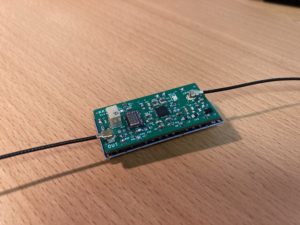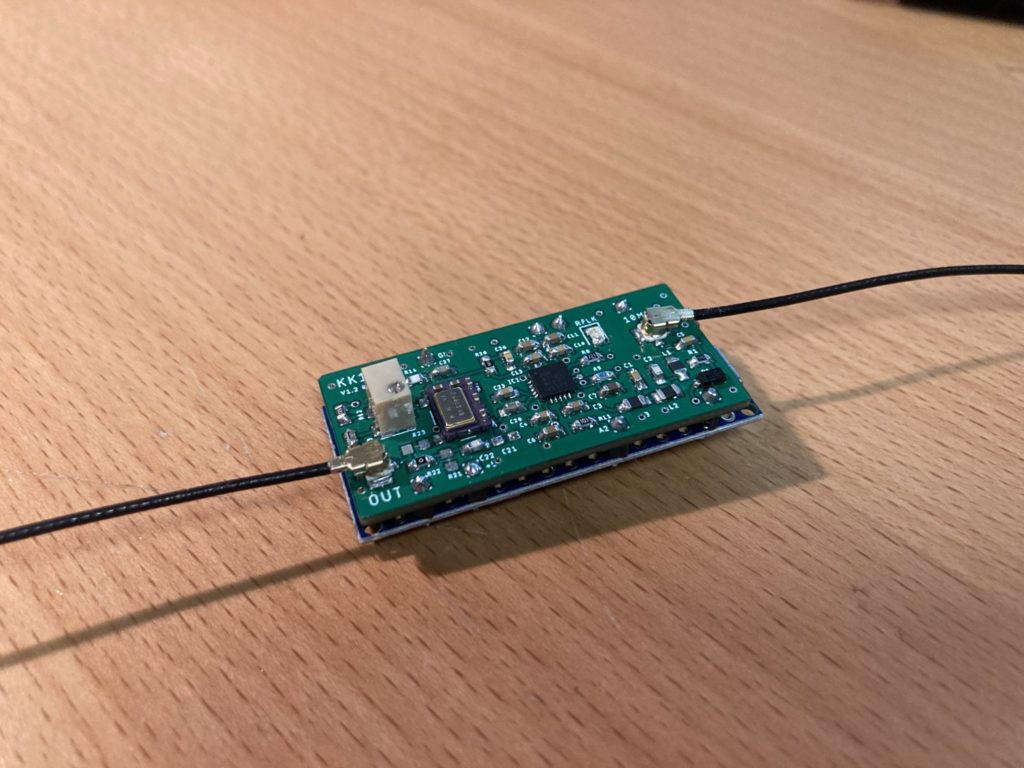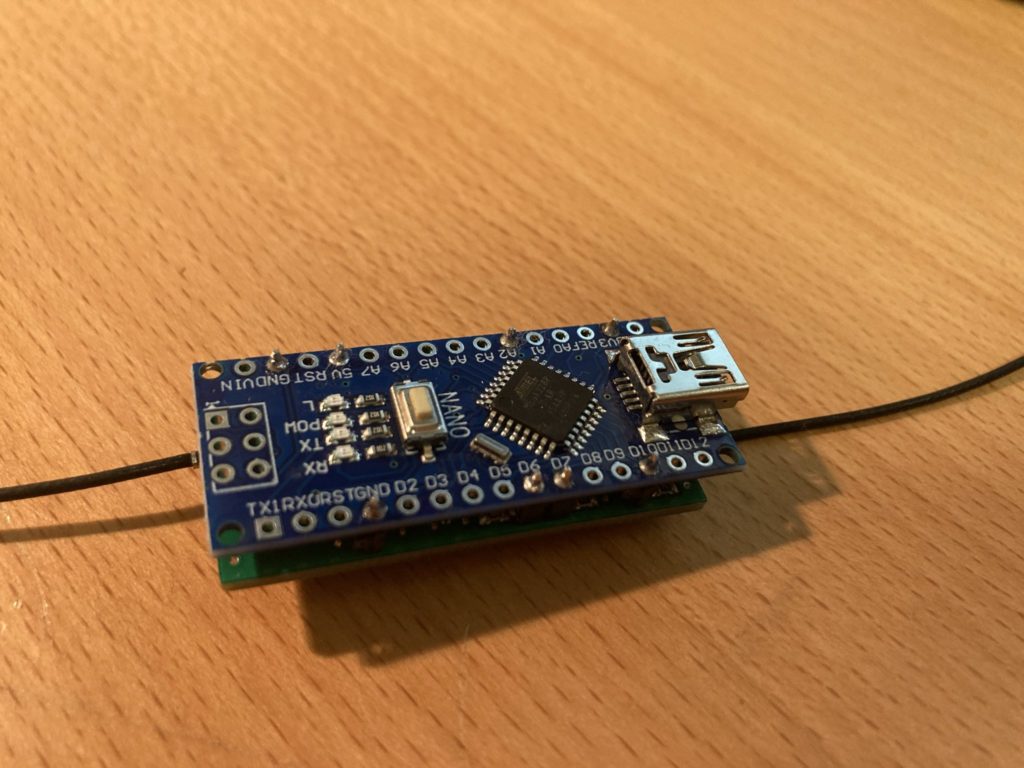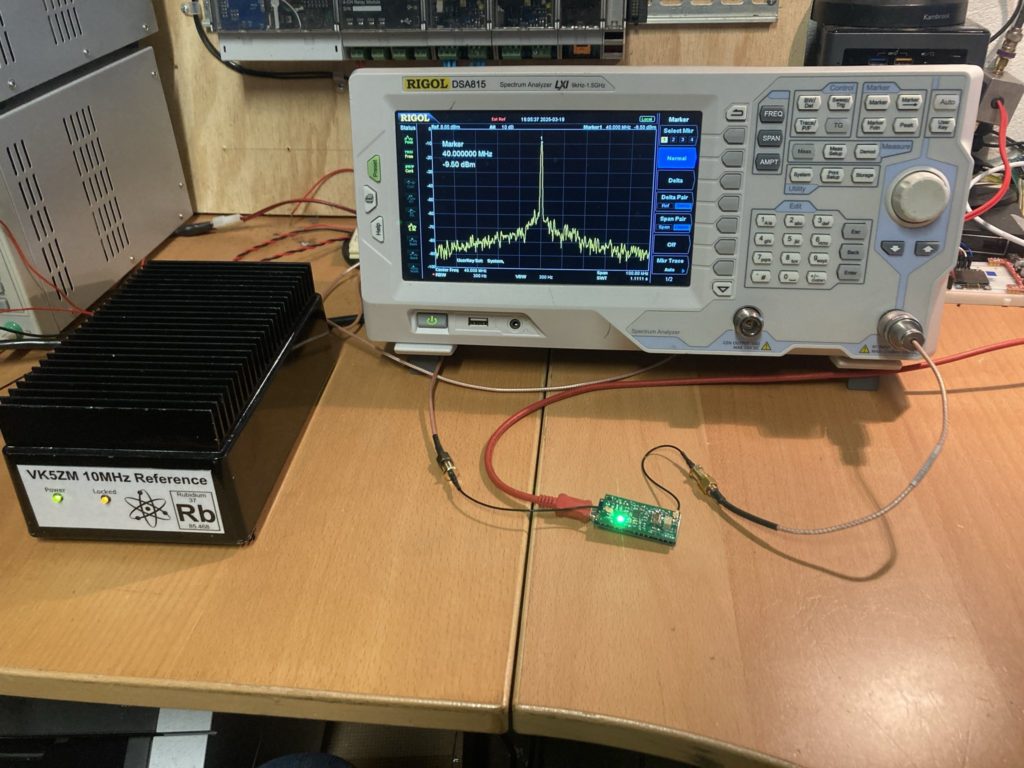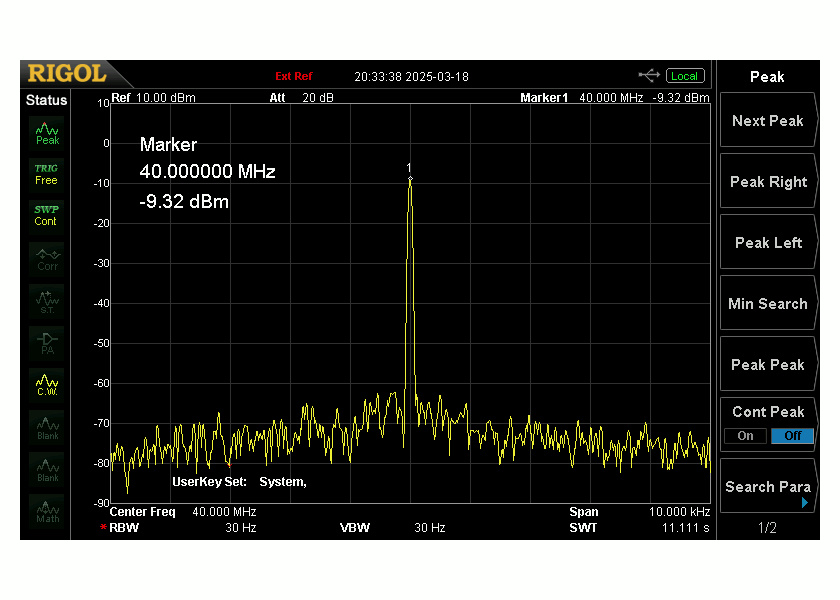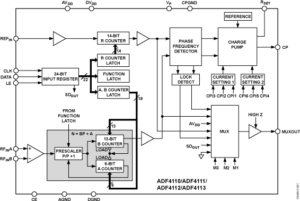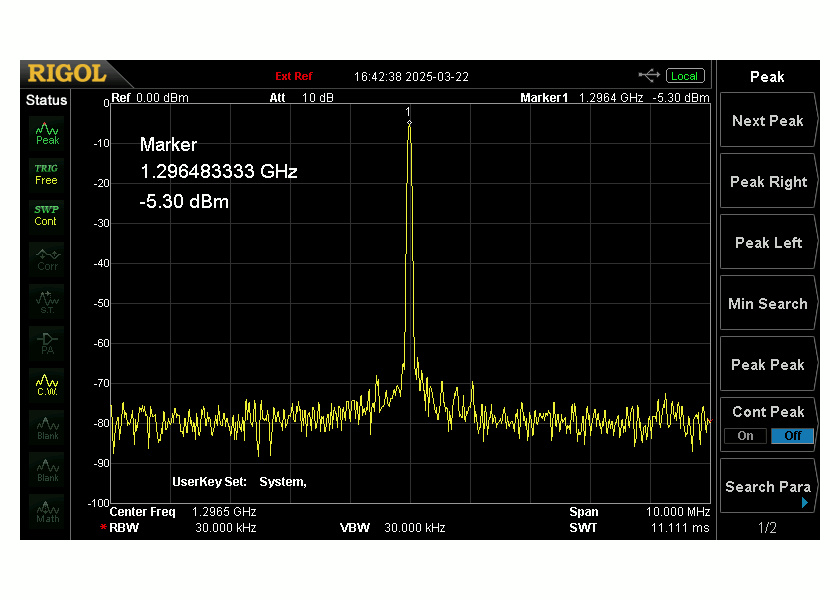Now that the KK103c1 firmware is finished and capable of generating a 40MHz carrier that is phase locked to my 10MHz Rubidium reference, it’s now time to test everything is indeed working.
ADALM Pluto External Clock Input
So up until now I’ve talked a lot about the ADLAM Pluto Clock input, but as yet have not shown where it is or what it does. From the Analog Devices Pluto University the following image below shows all of the inputs and outputs on the ADLAM Pluto. I’ll be feeding the KK103c1 into the “CLK IN” port, which is one of those lovely UFL connectors that are difficult to plug in without glasses or hellish with fat fingers, sigh.
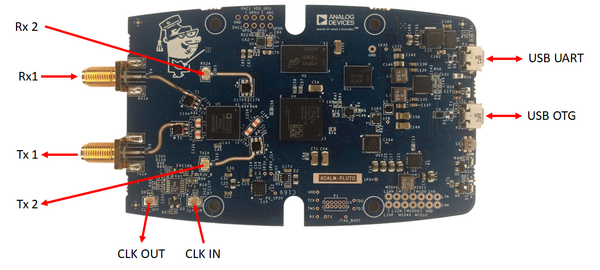
So to make sure the “CLK IN” will work, we can look closely at the schematic for the Rev-C/D hardware and see what is there.

As per my previous post, the Connor Winfield VCO was not happy driving into a 50Ω load. It would also appear that the ADLAM Pluto has the same input impedance provided by resistor R96. Looking at the output of the KK103c1 driving into a 50 load, I see the output drop to +/-0.46Vp-p which is only just above the minimum input of the LTC6957 buffer being used to re-clock this input. So while this works, I will need to revisit this level and look at if I increase R96 to 200R to improve the signal levels provided by the KK103c1. Good enough for government work at this point in time. There is also a capacitor value that I can change to balance the KK103c1 output signal with the ADF4110 REFIN pin, to be investigated further.
Test Setup
Once the External Clock Input was checked, the KK103c1 was connected by a short UFL-UFL lead to ADALM Pluto. I typically use a pair of tweezers and a microscope to get these things connected. The test setup is shown in the image below.
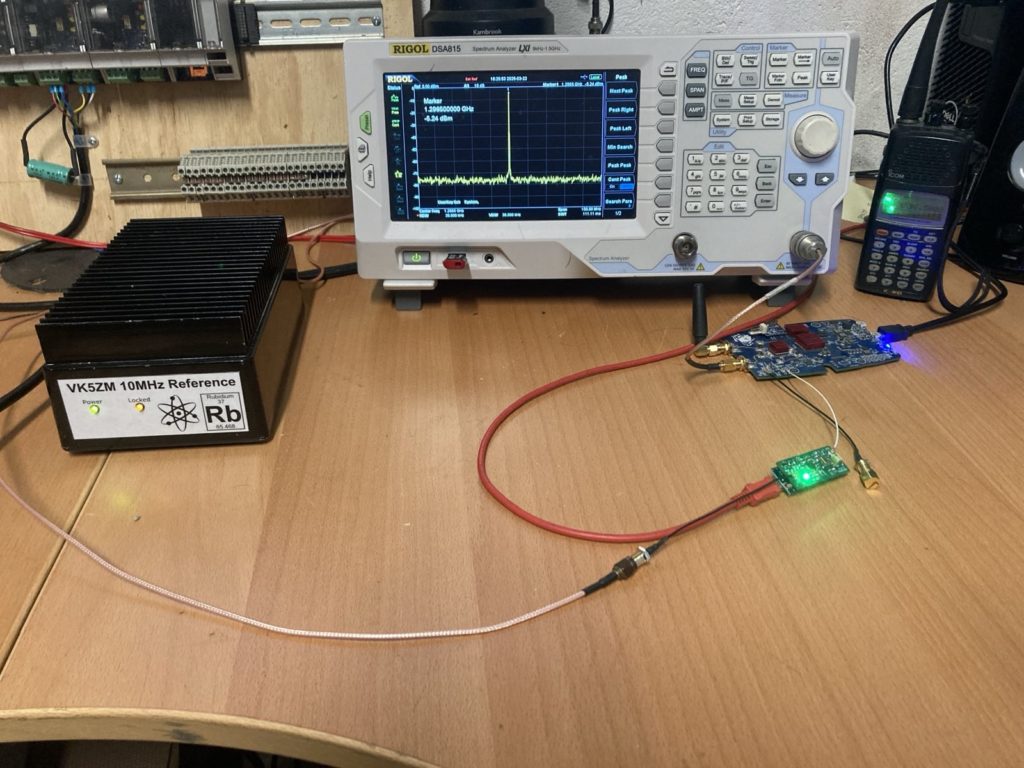
The 10MHz Rubidium reference was feeding both the Rigol external reference input and the KK103c1 module in the foreground. Again the Icom R10 was being used to listen to the carrier for any signs of instability, usually heard as clicks or warbling. I again used SDRangel to set the ADALM Pluto into transmit on 1296.5MHz wanting to keep this up towards the upper range of the Rigol scope so that any minor changes in the 40MHz clock would show up as error in the output frequency. I also deliberately de-tuned the VCO with the 10MHz reference not present to test that the PLL was in fact going into power down.
Internal vs External Clock Input
Below are the results from configuring the ADLAM Pluto to use it’s own internal oscillator vs the external 40MHz KK103c1 output. The following article from AMSAT DK goes through the process of switching the Pluto from it’s internal clock to external. The span has been reduced to 50kHz and the vertical scale changed to allow the spectrum analyser to find the peak. The results speak for themselves, that’s a lot of zeros.
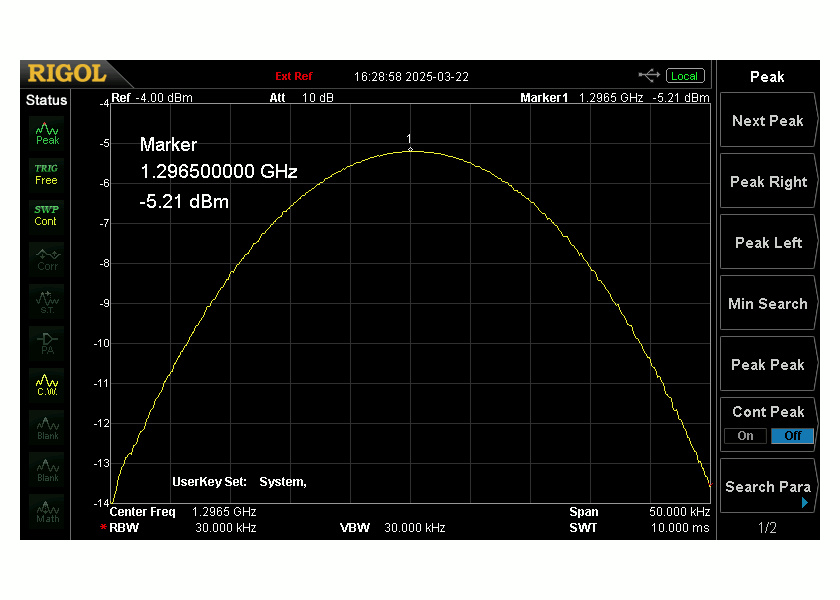
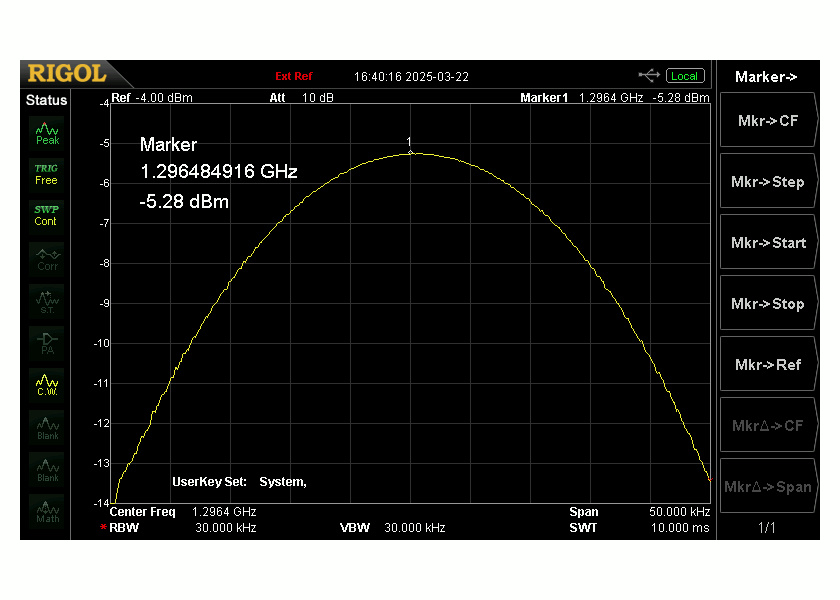
As can be seen in the image above. With the ADLAM Pluto configured to use the internal oscillator, there is 15kHz of error in the output signal, that simply disappears when clocked using the external 40MHz source. This was confirmed having to re-tune the Icom R10 to follow this change in output.
I’m certainly pleased with this result.
Carrier Spurs from external clock
It is typical to see Spurs appear if the reference oscillator does not have a clean or jitter free output. Widening the span to 10MHz and 100MHz respectfully, the output of the ADLAM Pluto remained spur free. Well at least within the limits of the Rigol DANL. There is some close in phase noise that needs to be checked with better equipment and perhaps when boxed.
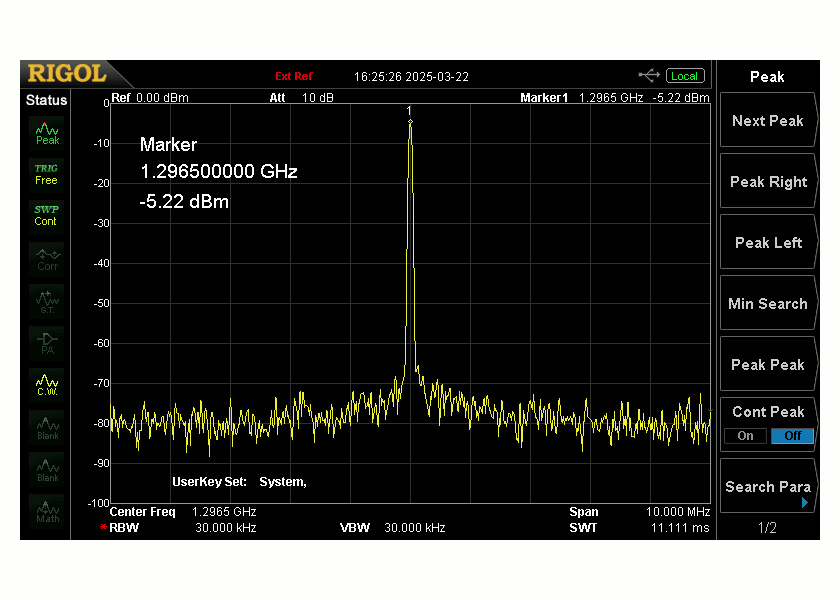
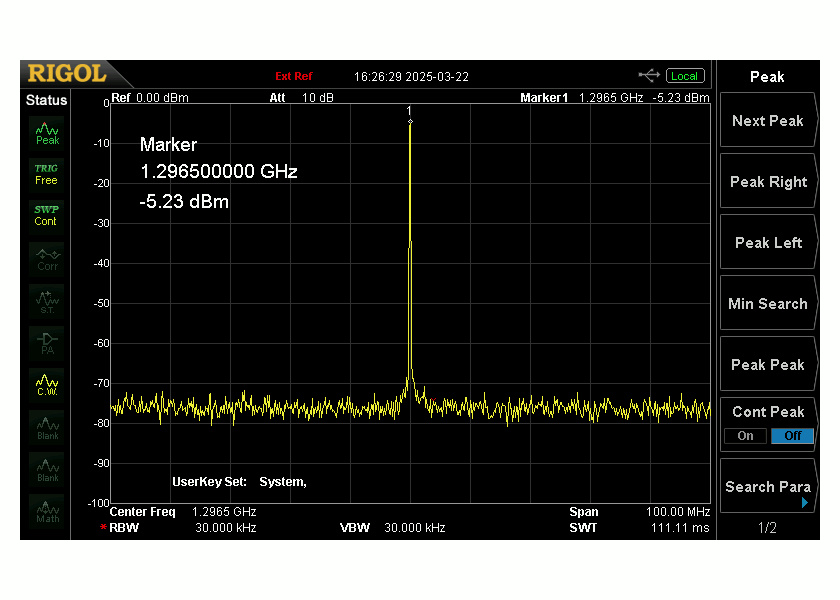
Next Steps…
I still have to investigate the phase noise from the KK103c1 module when the opportunity presents. I will also be investigating the harmonic output of the Pluto Charon at the same time that phase measurements are made, the poor old Rigol is limited to an upper frequency limit of 1500MHz. Unfortunately the Rigol Spectrum Analyser is not quite metrology grade lab equipment, so this will all have to wait for a bit longer.
Now that I have the output of the ADLAM Pluto locked to my Rubidium source, it’s time to begin boxing this up into an enclosure with the Pluto Charon kit and finishing my 23cm all mode digital SDR radio.
Onwards and Upwards !

